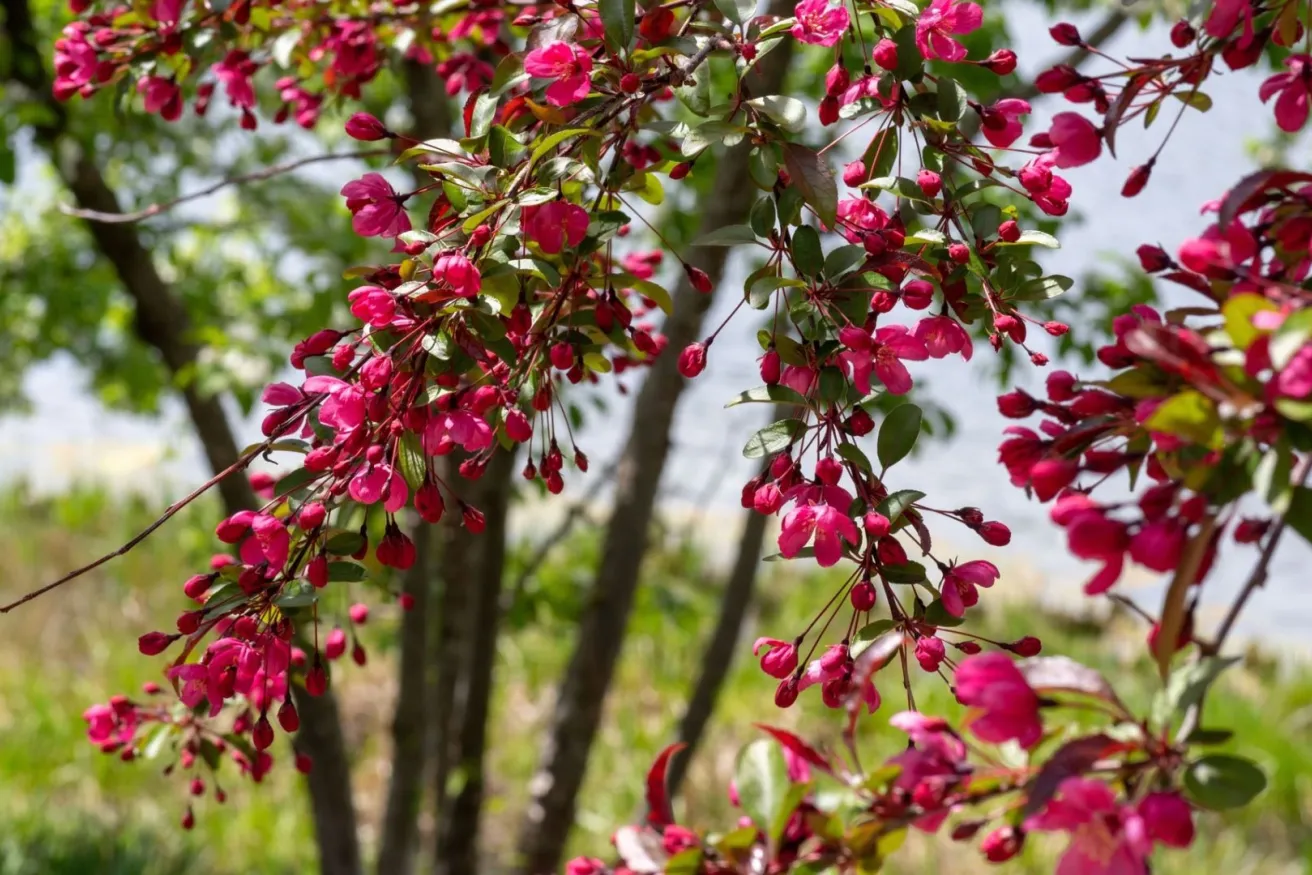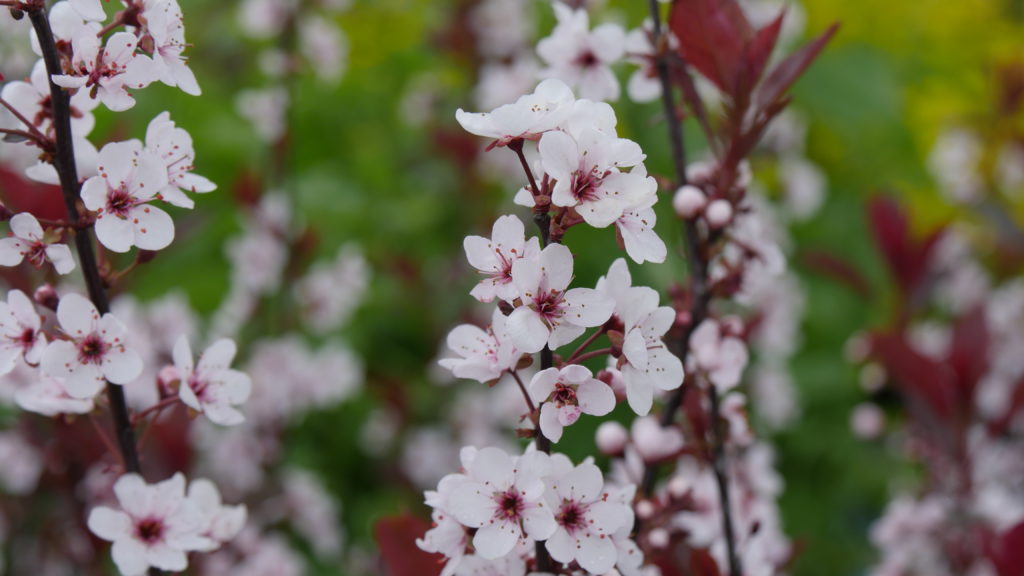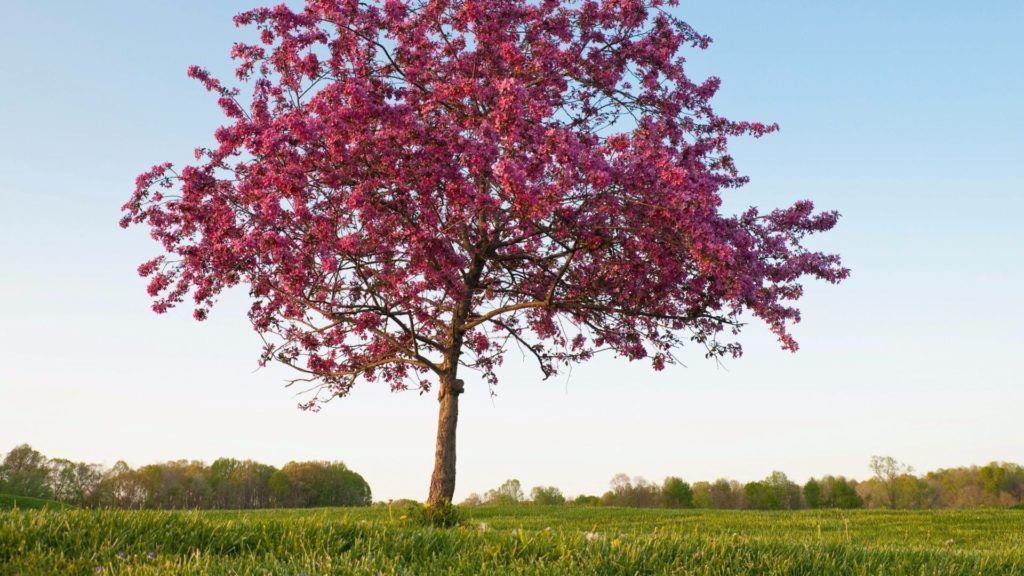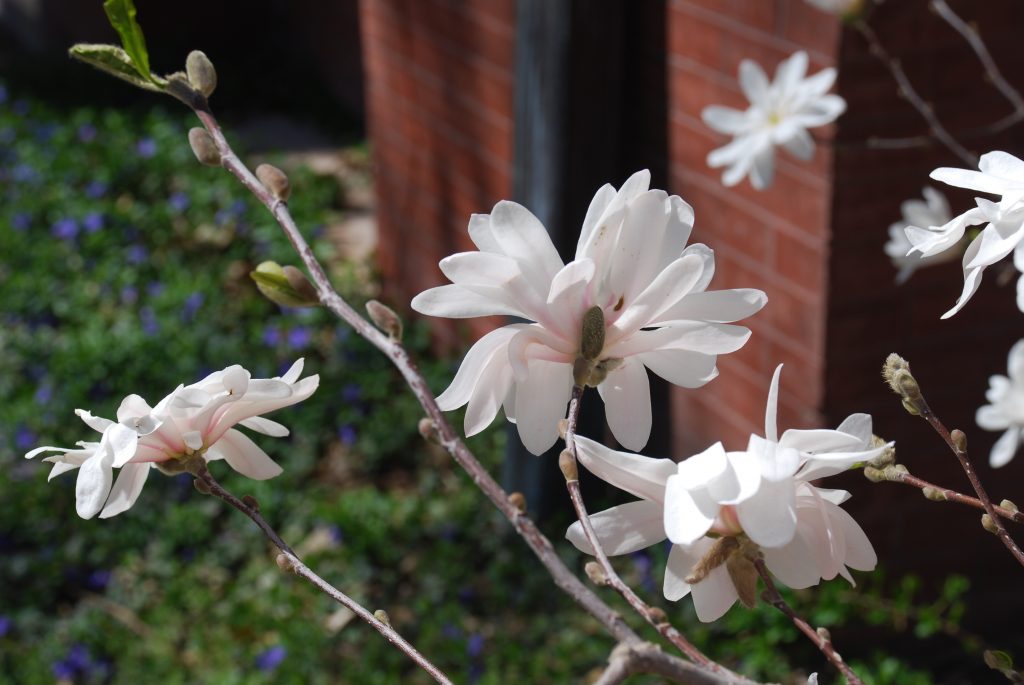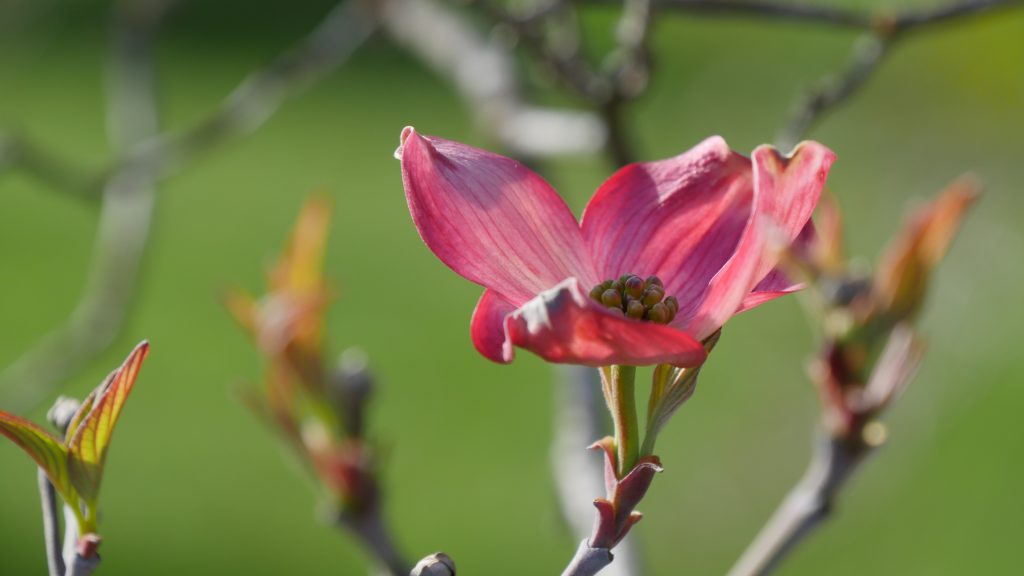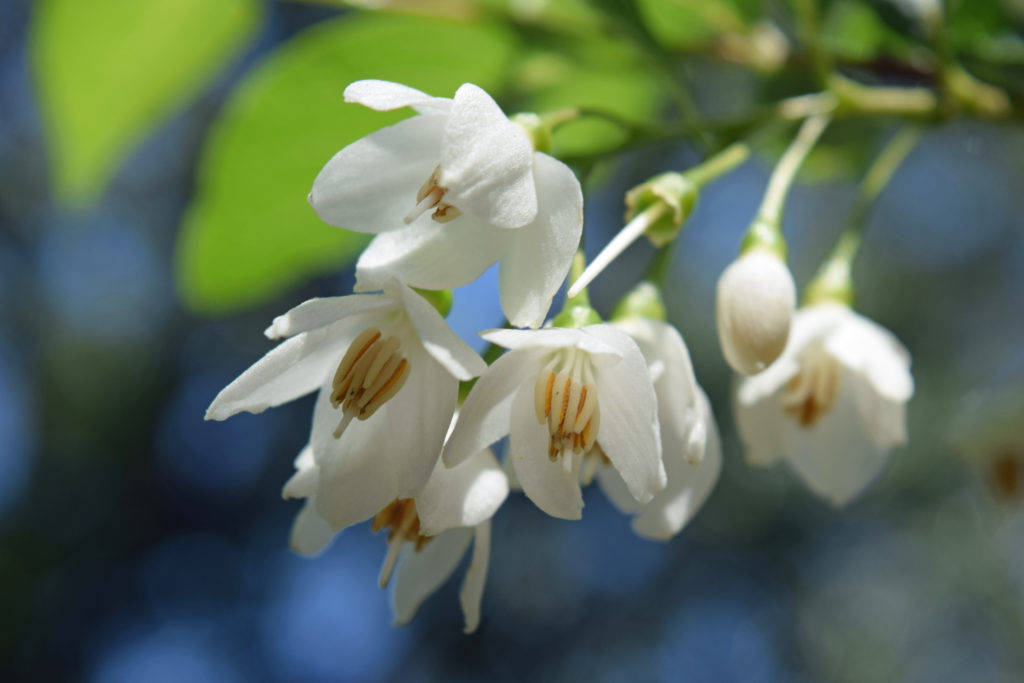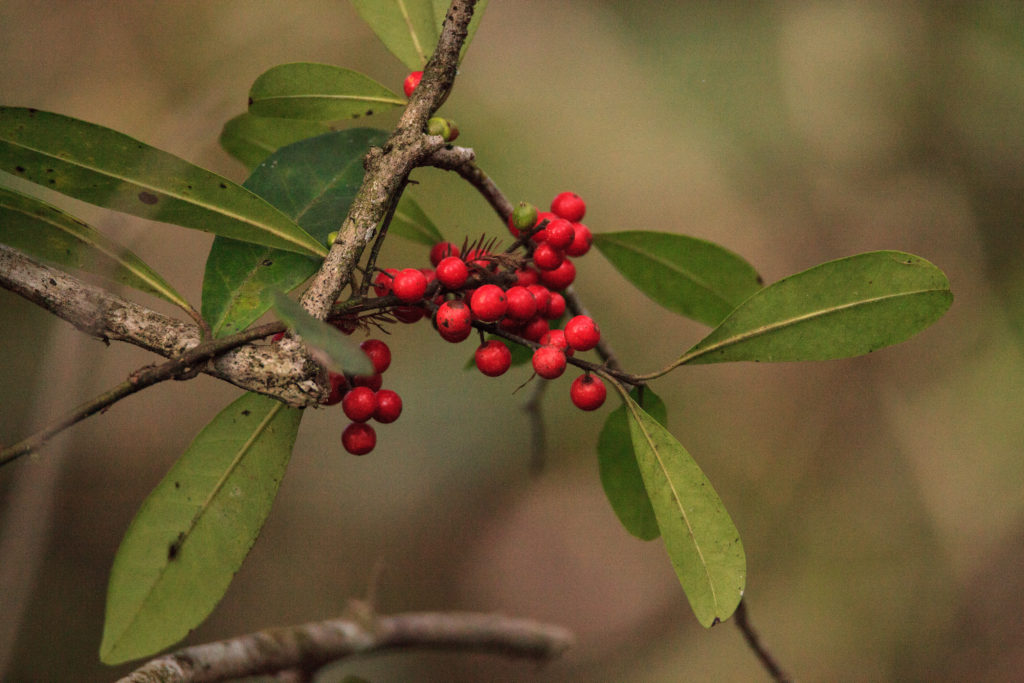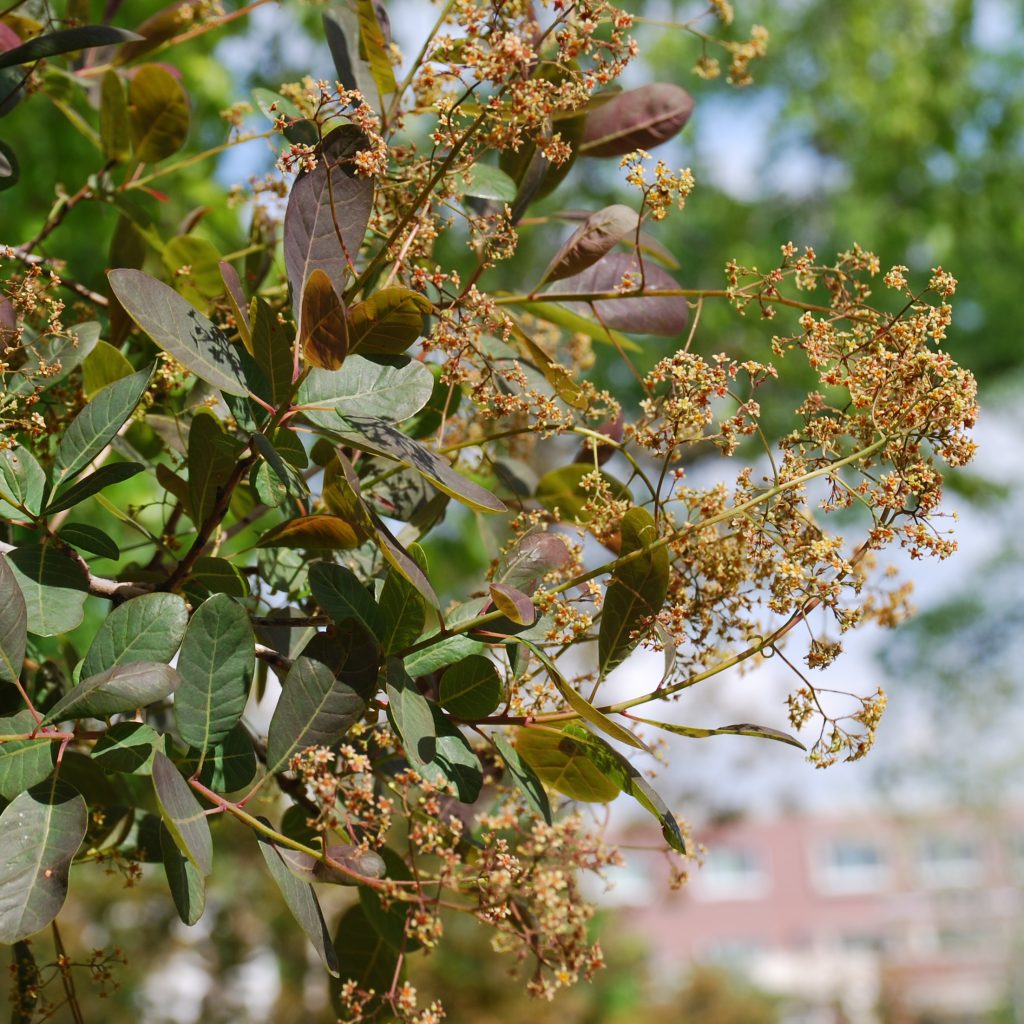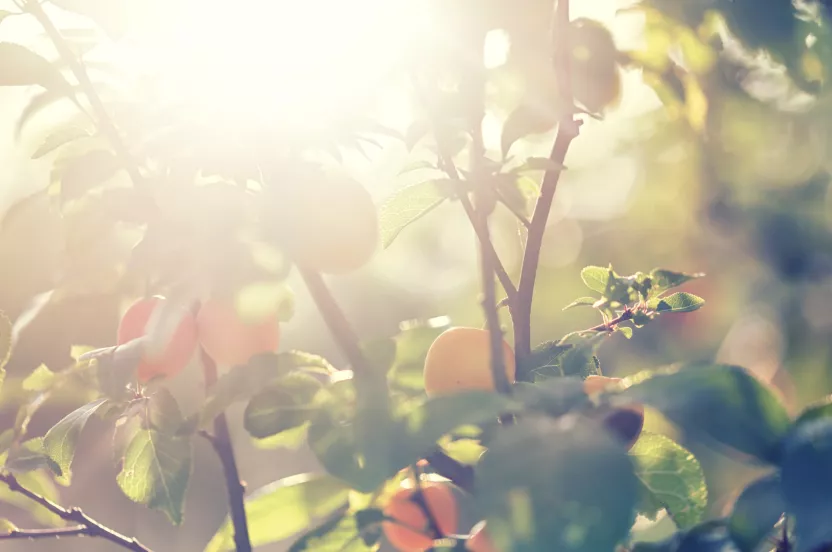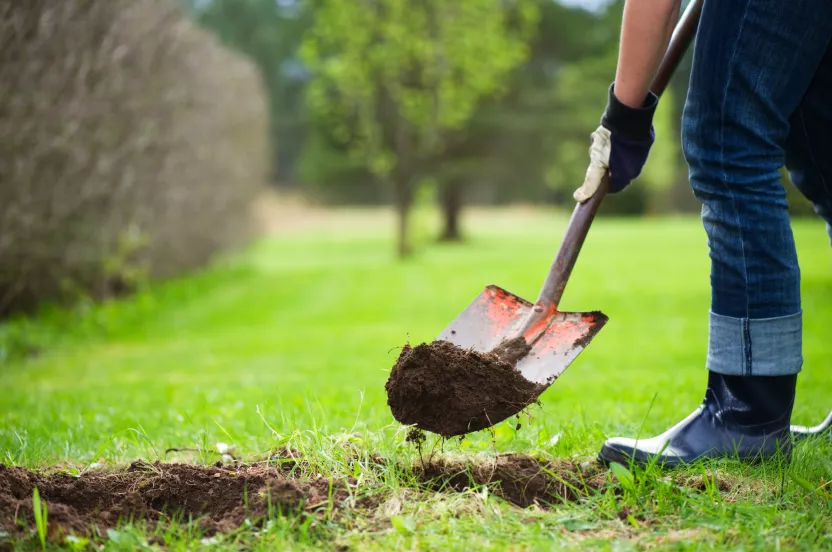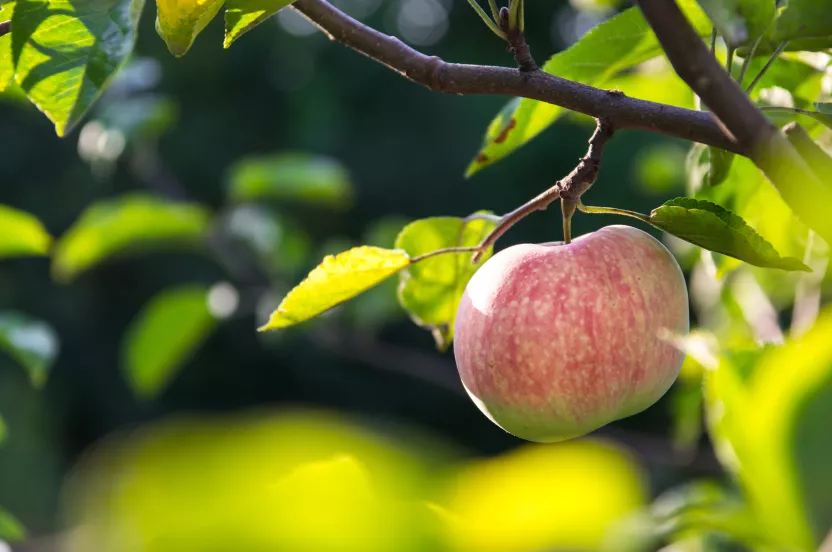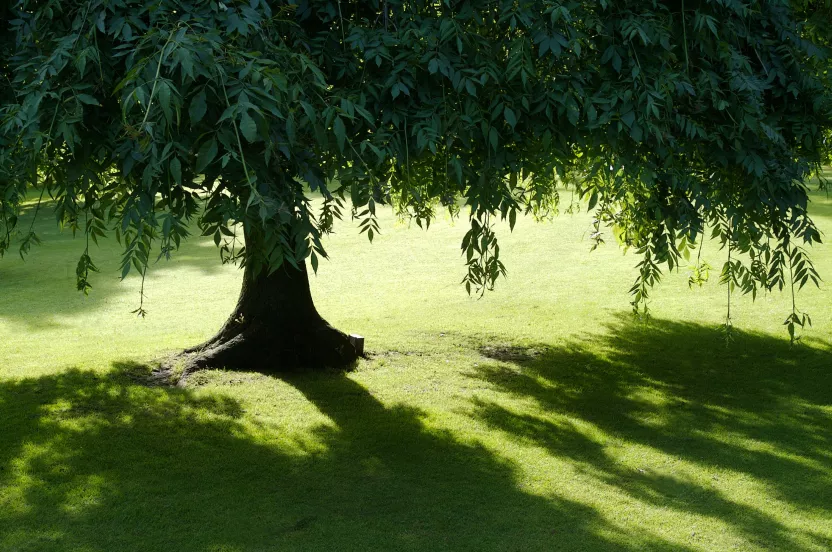Now live: The 2025 Canopy Report. Learn how Americans see trees. GET THE REPORT
The best way to spruce up and add life to your yard or landscape is by planting a variety of trees and shrubs. There are many different varieties to choose from. Big or small, flowering trees are a great option to add visual interest. For some color and beauty, small flowering trees are a perfect addition that brings color, wildlife, and shade to your yard.
Check out these small flowering trees that are ideal for smaller yards and spaces:
Prunus x cisterna
This is a hardy flowering landscape tree species with reddish-purple foliage that keeps its unique color all summer. As such, the purpleleaf sand cherry makes an excellent contrast tree. It can be planted close to paved surfaces and near utility lines. This tree also works as a deciduous hedge.
Hardiness zones 3–7
Mature Height 7'–10'
2. Prairifire Flowering Crabapple
Malus 'Prairifire'
The showy, dark pink to red flowers is what draws most people to the prairifire flowering crabapple. While the stunning, long-lasting spring blossoms are a sight to behold, this variety also offers year-round beauty with its changing leaf color. The leaves that start out a glossy maroon or purplish-red in spring become dark green with purplish-red veins in the summer and then a beautiful bronze color in autumn.
Hardiness zones 3–8
Mature Height 20'
Read Which Small Trees will Work for your Yard?
Mature Height 20'
Magnolia stellate
With showy, fragrant flowers, dark green leaves, and striking gray bark, this hardy magnolia is a true eye-catcher. It thrives in nearly every location in the U.S. and works well as a single specimen or foundation planting. The star magnolia could be the landscape solution for backyard gardeners looking to add a lovely spring interest to their spaces.
Hardiness zones 4–9
Mature Height 15'–20'
4. Red Dogwood
Cornus florida var. rubra
Aptly named, the red dogwood brings a splash of color to the seasons. Red blooms cover the tree in spring, and reddish-purple leaves (as well as glossy red fruit) adorn it in the fall. This dogwood is a great landscape addition near utility lines, next to buildings, or near patios. It is also an excellent contrast tree for larger evergreen backgrounds.
Hardiness zones 5–9
Mature Height 20'–25'
Crataegus phaenopyrum
The Washington hawthorn is a small, colorful tree that will brighten any landscape. Its pleasant display begins with reddish-purple leaves emerging in spring that turn to dark green as they are joined by a graceful display of white flowers. In autumn, the leaves turn orange, scarlet, or even purple. Red berries extend the colorful show into winter, often contrasting beautifully with the first winter snow.
Hardiness zones 4–8
Mature Height 25'–30'
6. Dahoon Holly
Ilex cassine
This evergreen holly is an excellent accent or specimen tree for moist to wet locations. The brilliant red berries not only make a statement in the fall and winter months but also serve as an important food source for wildlife. Plant at least two trees to ensure plenty of berries.
Hardiness zones 7–10
Mature Height 20'–30'
Watch Ask an Arborist: Why Should I Plant in the Fall?
7. Smoketree
Cotinus coggygria
Originating in the wooded hills above the Mediterranean, the smoketree holds true to its name. The species boasts blooms that are wispy clumps of filaments — either cream or pink — that look like puffs of smoke. This easy-to-grow specimen is a good choice for a shrub border or other grouping. It can flourish as a multi-stemmed shrub, be pruned to a single-trunk tree, or be cut back every year to maintain the look of a smaller bushy plant.
Hardiness Zones 5–8
Mature Height 10'–15'
